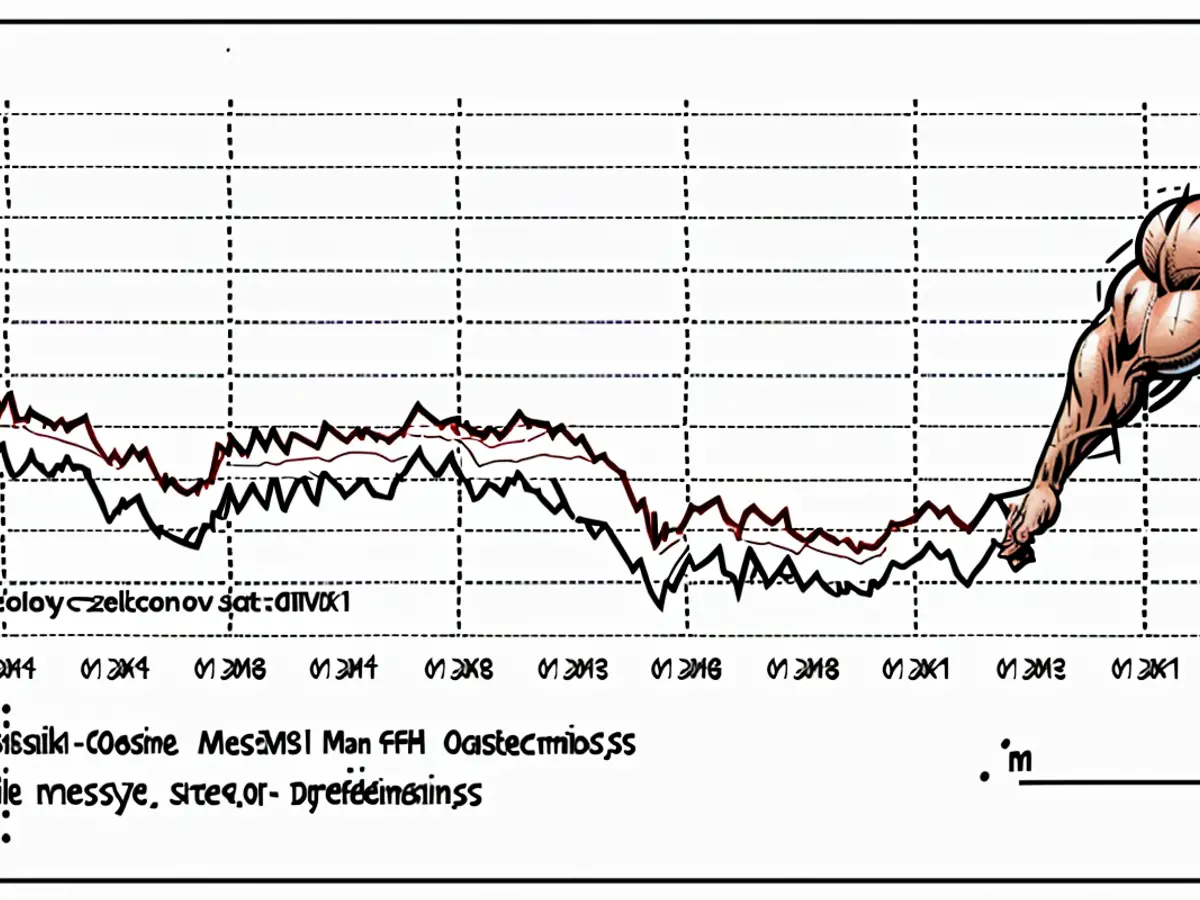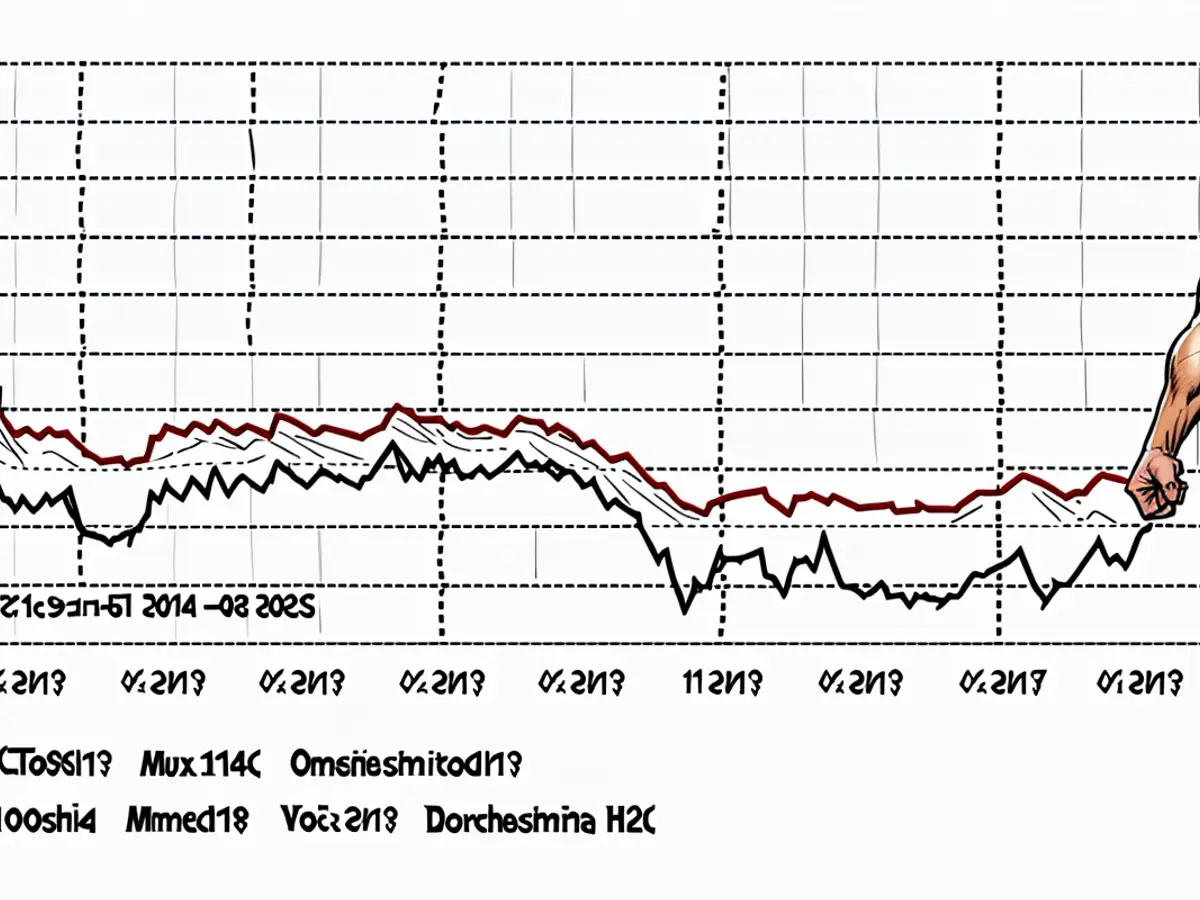Is real estate financing going up in price?
Last Week's Stock Market Volatility. The U.S. Election. The Uncertainty of Major Central Banks. The Global and Financial Political Situation Makes Predicting Interest Rate Developments Extremely Complex. Max Herbst, CEO of FMH Financial Consulting, Still Tries to Peer into the Crystal Ball.
Buying a house or apartment is often the most significant financial decision one makes in life - and requires reliable decision-making tools. The most important factors are: one's own financial strength, current mortgage rates, and the development of property prices.
While the first question can often be answered with a glance at one's bank account or portfolio, the latter two factors are much harder to assess.
Let's start with property prices. Their level is closely tied to supply and demand. With demand for good properties picking up again and attractive properties still in short supply, prices are currently rising slightly. This trend is not entirely surprising, but it can still pose challenges for potential buyers.
Predicting the development of mortgage conditions is much more difficult. While the European Central Bank's (ECB) interest rate cut has raised hopes among many potential buyers that mortgage rates could also become cheaper, this is not always the case.
Why the ECB Only Slightly Affects Mortgage Rates
Assuming that mortgages usually have a ten-year or longer interest rate fix, banks primarily fund them with long, medium, and short-term capital market funds - often also from ordinary customers.

- The short-term loan components of ten-year mortgages are often refinanced with savings and time deposits, on which the ECB's interest rate decisions have a direct impact.
- For the medium and longer-term loan components, however, German banks and savings banks typically rely on covered bonds or long-term savings and time deposits. It is self-evident for a serious bank that long-term customer loans are also secured with long-term and secure refinancing. The highest security is provided by the German state, which can be seen in the low yield of German government bonds. Almost as good are covered bonds, which are considered risk-free investments. They are only used to refinance mortgage loans secured by land registry.
- When the yields of government bonds rise, the yields of covered bonds usually also rise. The development of mortgage rates depends on the yield of covered bonds, which in turn is oriented towards German government bonds. Here, the ECB's policy has only a limited impact.
The recently fallen yields of German government bonds and covered bonds do not necessarily have to remain at this level. Long-term oriented investors are indeed concerned about security, but they also have an eye on rising inflation expectations. If there is a change in investment behavior, this affects yields: if stocks perform poorly, many investors switch to safe bond values, which in turn puts pressure on yields.
If the ECB lowers interest rates as expected in the near future, this could paradoxically lead to an increase in German government bonds and covered bonds, as investors fear that the central bank is neglecting inflation control and therefore wants to compensate for it with higher yields.
Mortgage Rates and Inflation: A Complex Interplay
Current Inflation is at 2.3 percent. Ten-year German government bonds yield 2.25 percent, Pfandbrief bonds yield 2.97 percent. Consequently, customers are currently paying around 3.5 to 3.6 percent interest for their mortgage financing. The difference between Pfandbrief yield and mortgage interest is used by the bank to cover the costs of lending and their own margin.

The following aspects are likely to influence the development of mortgage interest rates in the coming months:
- Uncertainty on the stock market: It will persist and suggests low bond yields for German government bonds and Pfandbriefe, as investors seek safety over risk.
- Inflation: It could rise again in August and September, which would suggest higher yields for Pfandbriefe and government bonds.
- Central bank policy: This could also drive up the yields of government bonds. If the ECB decides to lower interest rates by another 0.25 percent in September, despite a slight increase in inflation, this could unsettle investors. However, if the ECB and Fed decide against rate cuts, this could keep the yields of government bonds (and thus mortgage interest rates) relatively stable.
In such a situation, predictions are naturally difficult.
Personally, I expect that there will not be any dramatic fluctuations in mortgage interest rates, but rather that the current index value of 3.45 percent could swing by 0.25 percentage points up or down.
The reasoning behind this is as follows:
- The ECB and Fed will likely carry out their announced rate cuts of 0.25 percentage points, which will not contribute to a reduction in inflation and therefore will not lead to lower mortgage interest rates.
- The uncertain outcome of the US elections will continue to cause nervousness on capital markets. The same applies to the global political situation.
- Both aspects will drive capital investors towards safe investments like German government bonds, so their yields are likely to remain low.
- A counter-trend could potentially be triggered by a victory of the AfD in the state elections in Saxony and Thuringia, as investors also value political reliability and stability.

Max Herbst is the owner of the FMH Financial Advisory firm, which has been providing independent interest rate information since 1986.
Given the complexities of predicting interest rate developments due to factors such as the U.S. election, uncertainty of major central banks, and global political situation, the Federal government could play a role in stabilizing the financial market by implementing policies that foster economic growth and consumer confidence.
In light of the influence of ECB's interest rate decisions on mortgage rates, a more coordinated approach between the Federal government and the ECB in managing interest rates could potentially lead to more predictable mortgage conditions for potential buyers.







